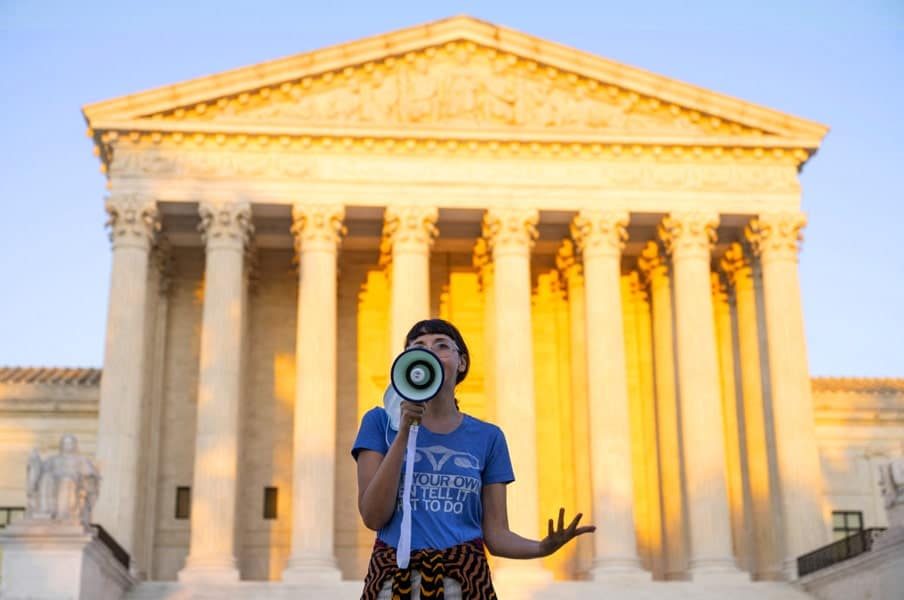Cover photo by Drew Angerer via Getty Images
Just this week, the Supreme Court, in a vote of 5-4, refused to block the implementation of the Texas abortion ban. As of September 1st, Texas will ban a majority of abortions. Signed into law by Governor Abbot back in May, abortions will no longer be performed once cardiac activity is detected, typically around 6 weeks.
There will be no exceptions for pregnancies resulting from rape or incest, and very minimal exceptions for health concerns. The argument against the Texas ban stems from the fact that those with pregnancies don’t even know they are pregnant once 6 weeks are marked. According to Texas abortion providers, 85% of patients seeking services are at least 6 weeks pregnant.
The Supreme Court’s actions, or lack thereof, have left many across the nation stunned, including President Joe Biden. “The Supreme Court’s ruling overnight is an unprecedented assault on a woman’s constitutional rights under Roe v. Wade,” he said in an official White House Statement. Roe v. Wade was the 1971 landmark Supreme Court case establishing the federal right to abortion. Forty years later, the fight for the right to abortion continues.
Texas has introduced various enforcement measures to prevent now “illegal abortions” from occurring in the state. The law provides recourse through civil action against any person performing or inducing an abortion, including aiding and/or abetting said abortion. Private citizens can now sue abortion providers or anyone else involved in accessing an abortion. Even giving a patient a ride or paying for the procedure gives any private citizen grounds to sue, granting them $10,000 if they win. It doesn’t matter who this private citizen is or whether or not they have a connection to any person involved in the abortion.
In addition to civil legal action, Texas Right to Life, an anti-abortion organization, recently introduced prolifewhistleblower.com, encouraging anonymous reports of anyone or any entity involved in abortions past September 1st.
Texas today is a drastically different state than it was one week ago. “[Patients] understand that the abortion that they’re having this week, last week, the week before, is something that they wouldn’t be able to have next week,” says OB/GYN Dr. Ghazeleh Moayedi. “They’ve been asking about it and asking, you know, ‘If I were here in September, would I be able to get this?'”
There are an estimated 7 million Texans of childbearing age who are now without access to abortions. The Guttmacher Institute predicts that with the shutdown of most or all legal abortion in Texas, driving distance to abortion services will increase 20 times, from 12 miles to 248 miles. Unsurprisingly then, it is the minority and marginalized abortion seekers who will be most disadvantaged, such as those who do not have transportation, and the time or financial means to travel outside of the state.
“Abortion access will be thrown into absolute chaos,” says Amanda Williams, executive director of an abortions support group. “Unfortunately, many people who need access the most will slip through the cracks.” Hispanic and Black patients were the two largest demographics seeking abortions in 2020, according to Texas Health and Human Services. A 2020 abortion study determined that Texas’s already restrictive abortion laws exacerbated pre-existing health disparities among non-white patients, those with greater need, yet lessened access to abortions.
Later this year, the Supreme Court will hear from the State of Mississippi, arguing the constitutionality of banning abortions after the 15th week of pregnancy. With a final ruling set to occur in 2022, once established federal abortion rights in the United States remain in a state of limbo.
Like what we have to say? Sign up to subscribe to email alerts and you’ll never miss a post.










